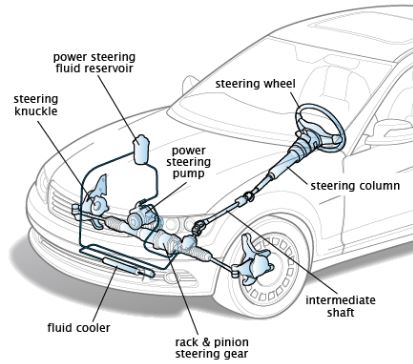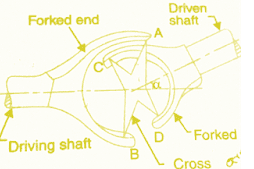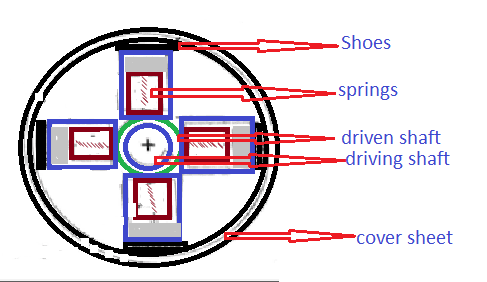Types of losses in steam turbine:
Steam Turbine being work producing device running at a high speed has number of losses occur in it, This losses results in to a Substantial loss of energy when they all combine together.
In Steam Turbine some losses are within the turbine itself and some are external.
1.Internal losses
2.External losses
1) Internal losses:
There are different types of internal losses they are explained as follows:
a. Leakage Losses at Tip and Diaphragm:
- Steam leakage may occur across the turbine shaft and in between the stages.
- Leakage loss is occurred between the turbine shaft and bearings, and in between the blade tips and glands.
- Due to the leakage losses in steam, the work done by this leakage stage is low because steam is not fully utilized for doing work.
- to reduce this loses drum type construction is useful to diaphragm and a wheel type construction is needed in reaction turbine.
b. Wetness of Steam:
- This type of loss is occurred due to the liquid particles present in the steam, in this liquid particles has less velocity than
- vapor particles this gives less efficiency, these losses can be reduced by reheating the steam.
- When a Steam causes wetness by this the water droplets on blades is formed, to throw off the water drops on blades there is a loss occur in mechanical work and erosion is also formed on the blades of last stage.
c. Radiation and Convection losses:
- this type of losses is occurred due to the temperature difference between turbine casing and surroundings.
d. Nozzle friction losses:
- These losses are occurred due to the friction in the nozzle. losses occurred in this can be reduced by using a better design.
- Steam turbine nozzle is designed to get isentropic expansion, by this we can get an increasing in velocity from inlet to exit. but in practically the steam leaving in a nozzle does not have a velocity equal to designed velocity value, this is occur due to non-isentropic expansion. there is a friction losses in between the steam and nozzle by this it occurs in non-isentropic expansion.
e. Carry-over losses:
- This loss occurs in between the nozzles gap and moving blade. by this kinetic energy of steam gets the loss.
2. External losses:
There are different types of external losses they are explained as follows:
a. Mechanical friction losses.
- This type of losses occurs due to the shaft and bearings friction.
- This can control by using better lubrication.
b. Shaft gland leakage:
* Steam Leakage takes place through Main valve and regulating valve.
* Seals and Glands.
* Space between Nozzle and Moving Blades.
c. Governing losses.
- This loss occur at the main valve of governing by throttling of steam.
- A good design of governor can reduce the losses.
d. Thrust and journal bearing:
* This losses is depend on the bearing load, shaft speed, oil viscosity and film thickness etc..
Please Subscribe! and Don’t forget to Follow us on Facebook, Twitter, Linkedin, Instagram and Google Plus.


